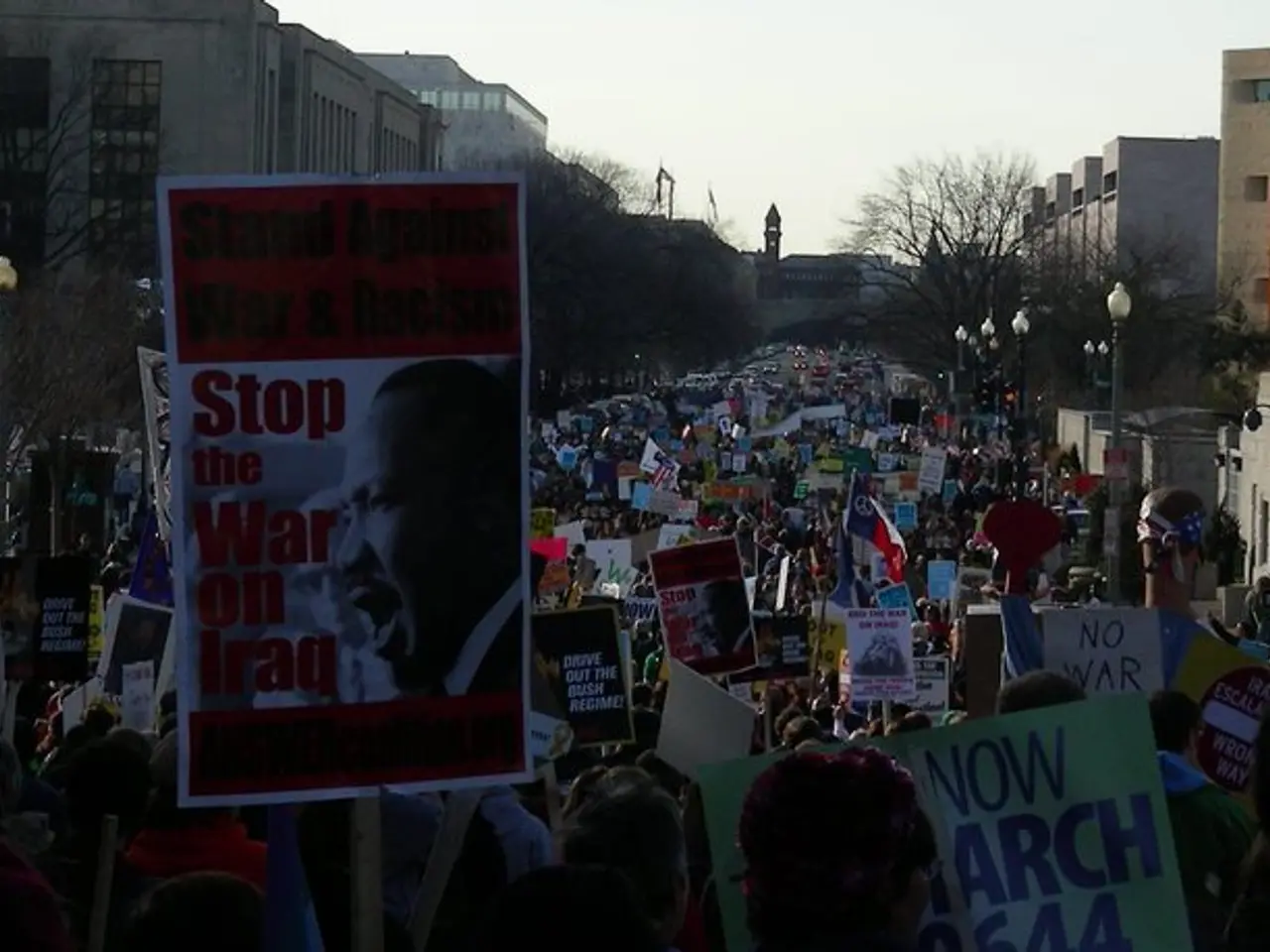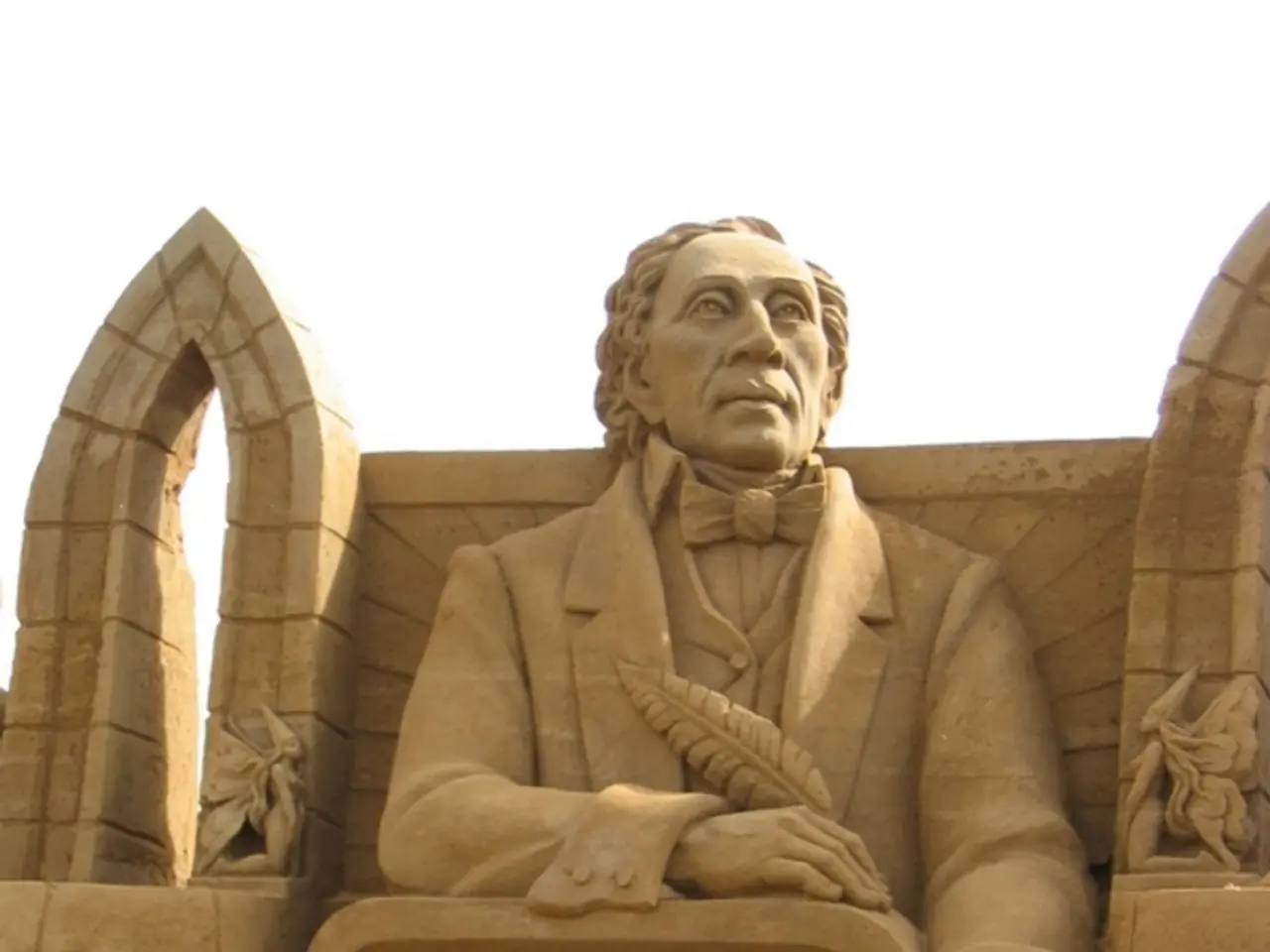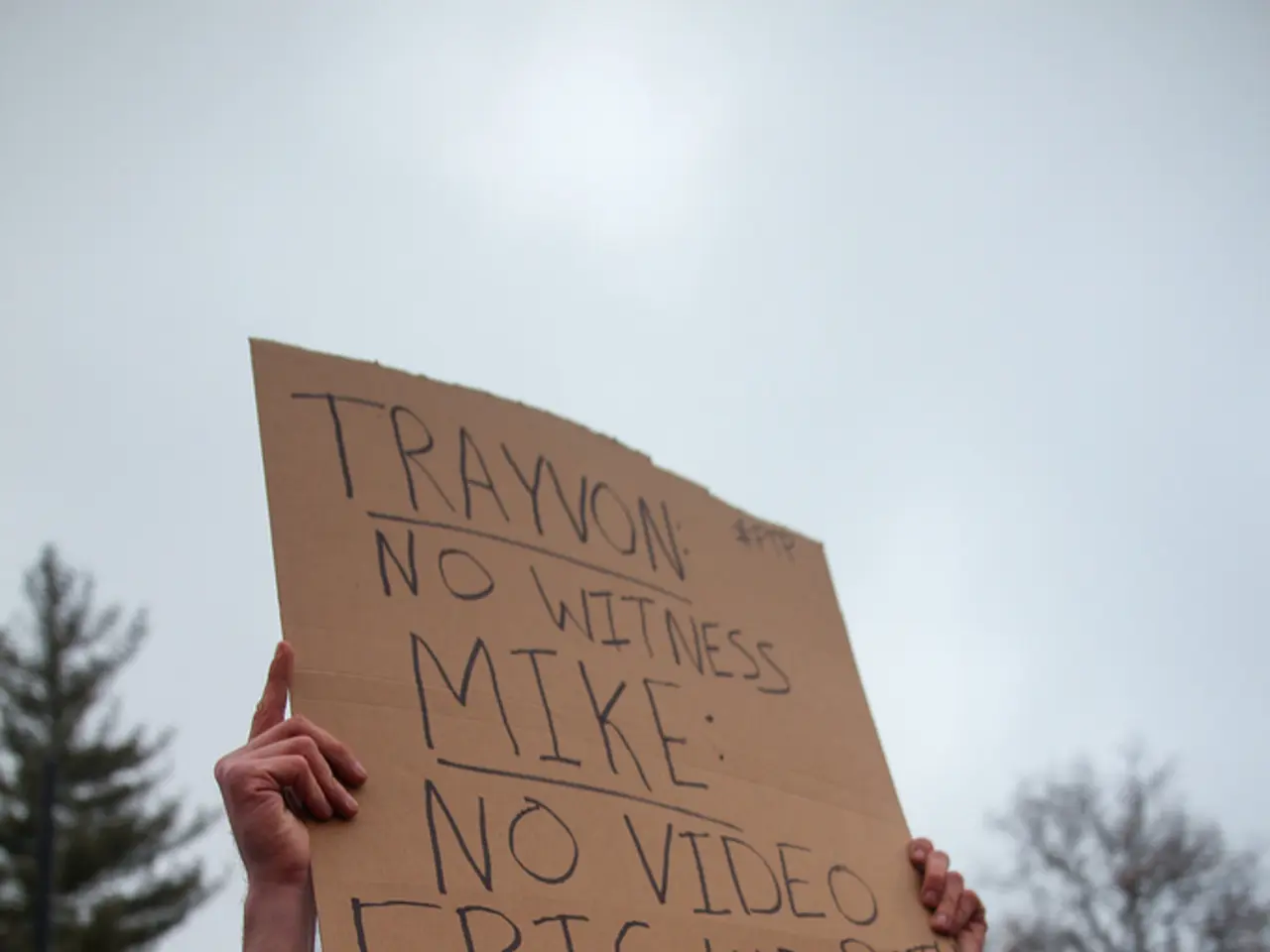Sondhi publicly plays a video of Sarit while passionately criticizing Thaksin and Hun Sen in a heated speech.
In a protest at Bangkok's Victory Monument on Saturday, Sondhi Limthongkul, a former leader of the People's Alliance for Democracy, played a historic clip from 1962, featuring Thailand's 11th Prime Minister, General Sarit Thanarat, delivering an impassioned speech concerning the Preah Vihear Temple case.
The clip showcased Sarit Thanarat's reaction to Thailand's rejection of the International Court of Justice (ICJ) ruling, which awarded sovereignty over the Preah Vihear Temple to Cambodia. In his speech, Sarit expressed his deep-seated emotions, stating, "My tears are those of a man. Let the blood of rage and lifelong resentment - in this life and the next - flow. One day, dear Thai brothers and sisters, we must reclaim Preah Vihear Temple for our nation."
Sondhi's decision to revisit this historic speech comes amidst renewed calls for the cancellation of MOU44 and increased tensions over the border dispute between Thailand and Cambodia. Sondhi has been vocal in his criticism of the government's plan to purchase bad debt, which he believes benefits only the wealthy and well-connected. He has also expressed concern over the crisis, blaming it on high interest rates charged by banks.
In response to Cambodian Senate President Hun Sen's claim that former Prime Minister Thaksin Shinawatra would insult King Bhumibol Adulyadej the Great while drunk on wine, Sondhi stated, "I won't argue - I've known for a long time." He also criticised Hun Sen's admission that he owed a political debt to Thaksin.
Sondhi has not shied away from making bold statements, such as his call for cutting off oil and electricity supply to Cambodia over the border dispute. He warned that this protest would not be the last, asking, "Will you stand with me when the time comes?" Sondhi estimated the protest turnout to be around 60,000 to 70,000, twice the police estimate of 30,000.
Sondhi has shown regret about having to call for Thaksin's daughter's ousting, saying, "What rotten luck." However, he has also emphasised the need for the people to be part of the solution and urged caution, stating, "If it happens, so be it - if the political crisis can't be solved."
The implications of Sarit's 1962 speech and Sondhi's recent actions serve as a reminder of the complexities surrounding sovereignty disputes in Southeast Asia. The interplay between international legal decisions, national politics, and public sentiment continues to shape the region's geopolitical landscape. As tensions between Thailand and Cambodia persist, the international community watches with interest, awaiting the resolution of this long-standing border dispute.
References: - [1] "Preah Vihear Temple: Thailand and Cambodia's Long-Running Dispute." BBC News, BBC, 15 Nov. 2011, www.bbc.com/news/world-asia-pacific-15708507. - [2] "Preah Vihear Temple." Council on Foreign Relations, Council on Foreign Relations, 24 Sept. 2020, www.cfr.org/backgrounder/preah-vihear-temple. - [3] "The Preah Vihear Temple Dispute: A Historical Analysis." Asia-Pacific Centre for Southeast Asia Studies, Monash University, 2014, www.monash.edu/__data/assets/pdf_file/0007/302352/Preah-Vihear-Temple-Dispute-A-Historical-Analysis.pdf.
- Despite the passage of decades, the Preah Vihear Temple dispute remains a contentious point in international politics, with recent events in Thailand echoing the sentiments of General Sarit Thanarat's iconic 1962 speech.
- The complexities of sovereignty disputes in Southeast Asia have once again come into focus, driven by the interplay of political sentiments, business interests, and economical factors, as demonstrated by Sondhi Limthongkul's protests and criticisms.
- The ongoing confrontation between Thailand and Cambodia over the Preah Vihear Temple border continues to be a topic of general news and concern for the international community, with the encounters between prominent figures like Sondhi Limthongkul and Cambodian Senate President Hun Sen contributing to the overall understanding of the region's geopolitical dynamics.





